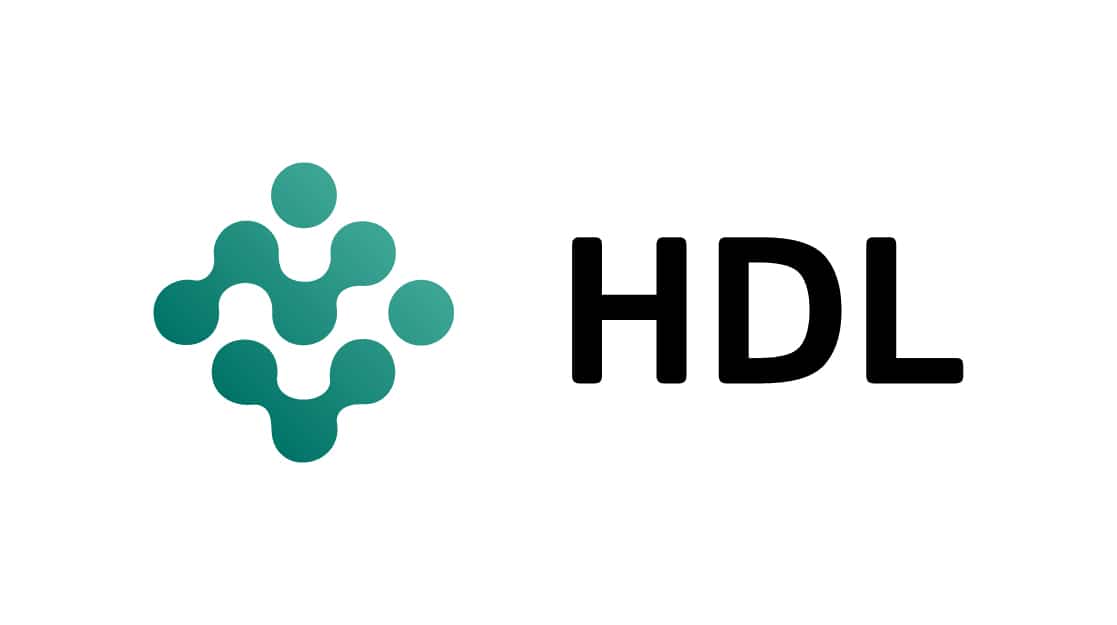Partners
Partners
Health data are essential for research and innovation in health, yet these data are often under-used because they remain too scattered. The HDH was hence conceived as the unique gateway to health data in France. Implemented in November 2019, it interacts with a variety of actors within the health ecosystem. The Health Data Hub has set up a highly efficient technological platform enabling public interest project leaders to mobilise very large data sources, to cross-reference them, and to use enough computing power to run complex search algorithms. In a word, the HDH supports ambitious project leaders who contribute to finding tomorrow’s solutions to improve all citizens’ health. HDH is the coordinator of the HealthData@EU project as well as the WP1 coordination of the project, WP3 evalution of the project, WP5 Infrastructure leader.
Press Contact: presse@health-data-hub.fr
Sciensano is a federal research institute that operates under the authority of the federal minister of Public Health and the federal minister of Agriculture of Belgium and is the scientific reference in the field of public health in Belgium. Its EU health information systems unit has taken the lead in many European projects: BRIDGE Health project, the Joint Action in Health Information InfAct, BAHCI (Bringing a Health Claim to Information) and PHIRI (the Population Health Information research infrastructure for COVID-19) in health information since its establishment in 2014. Furthermore, the EU HIS unit is involved in other European projects focussing on facilitating the (re)use of health data for research, such as HealthyCloud, the Joint Action TEHDAS (Towards the European Health Data Space) and BeYond COVID (BY-COVID). Sciensano’s EU HIS unit is in an ideal position to contribute to the consortium, being well-connected in the European health data landscape. Sciensano is WP6 Metadata Standards – Towards a common health Resource Description Framework (RDF) representation of metadata for interexchange between data portals leader within HealthData@EU Pilot project.
Press contact: Barthelemy.MoreaudeLizoreux@sciensano.be
The Danish Health Data Authority (DHDA) is a part of The Ministry of Health, established in 2015 with 300 employees. Main task is to develop and run the national health registers to ensure comprehensive and valid health data for patient treatment, development, planning and research. Affiliated partners: 1) Central Denmark Region (CDR) with 5 hospitals, a mature business intelligence platform, and a mature electronic health record, also performs research with more than 2,600 peer-reviewed publications per year from the University Hospital of Aarhus 2) Central Denmark EU Office (CDEU) investigate policy impacts and supports EU funded projects 3) Danish Life Science Cluster (DLSC) facilitates translation of knowledge to technological solutions for the benefit of patient. DHDA is WP4 Recommandation for being an EHDS node leader within HealthData@EU Pilot project.
Press contact: SDSpresse@sundhedsdata.dk
The Biobanking and BioMolecular resources Research Infrastructure – European Research Infrastructure Consortium (BBMRI-ERIC) facilitates access to samples and data as well as biomolecular resources to advance and implement precision medicine. BBMRI-ERIC is constituted by 23 Member States and one International Organization (AT, BE, BG, CH, CY, CZ, DE, EE, ES, FI, GR, HU, IT, MT, LT, LV, NL NO, PL, SI, SE, TR, UK and IARC/WHO), making it one of the largest research infrastructures for health research in Europe. Together with its National Nodes, about 700 affiliated biobanks, stakeholders and partners as well as its Expert Centres, BBMRI-ERIC provides services and advancements in the areas of Ethical, Legal and Societal Issues (ELSI), Quality Management (QM), Information Technology (IT), Biobanking Development (BBD), Public Affairs (PA), and Outreach, Education & Communications (OEC). In the EHDS2 Pilot, BBMRI-ERIC will particularly contribute with its expertise on regulatory and legal compliance including ethics data access procedures, security requirements and GDPR compliance to build a unique data access application for the EHDS and allow cross-border use of data. BBMRI-ERIC will further provide expertise on data interoperability, quality and protection including solutions for query and semantic interoperability with the goal of enabling precision medicine and provide guidance to personalized health care. BBMRI-ERIC is WP7 Regulatory and legal compliance and WP8 Data interoperability, quality and protection leaders within HealthData@EU Pilot project.
Press contact: luc.deltombe@bbmri-eric.eu
The Health Data Lab (HDL) is a unit of the Federal Institute for Drugs and Medical Devices (BfArM), Germany. It is currently under construction, but once operational, it will contain health claims data of all people in Germany with statutory health insurance (> 70 million people). In the future, it will also maintain voluntarily shared data from electronic patient records. The purpose of the HDL is to review data applications, minimise the re-identification risk and provide secure data access to legally determined beneficiaries such as researchers or public institutions aiming to improve the healthcare system. The HDL has extensive experience in national and international consortia (TEHDAS, CIOMS, NFDI4health, EMA Big Data Steering Group and DARWIN EU ® Advisory Board) which could strengthen the interconntection of the various European initiatives. The HDL is co-leader with the Health Data Hub of the WP5 IT Infrastructure.
Press contact: presse@bfarm.d
The Norwegian Directorate of eHealth is a sub-ordinate institution of the Norwegian Ministry of Health and Care Services. The Directorate is responsible for steering and coordination of eHealth through close cooperation with regional health authorities, local authorities, technical organisations, and other interested parties. Main responsibilities include developing and implementing the national policy on eHealth, establishing the requisite standards, and administrating the use of eHealth methodology nation-wide. Health Data Service (HDS) is a section within the directorate, and is being developed as a national service for easier access to data from health registers. HDS is administrating and developing the website helsedata.no, which provides guidance and tools to access high quality health data for research and innovation purposes. As the national competent authority of eHealth in Norway, our responsibilities include: Implementation the country’s policy on eHealth, Ensuring efficient national administration of eHealth, Serving as the secretariat of national fora on eHealth, Providing technical advice and interpretation of the relevant laws, Problem description and analysis in eHealth, Formulating and following-up the national eHealth strategy, Determining the codes, terminology and ICT standards, and their administration, and Ensuring intersectorial and international cooperation in ICT in health and care services. See more information on the directorates website and on helsedata.no/English
Press contact: Mads.Bjerke@ehelse.no
The European Public Health Association, or EUPHA in short, is the umbrella organisation for public health associations and institutes in Europe. Our network brings together over 39,000 public health professionals. The thematic network ‘EUPHA Public health monitoring and reporting section’ with almost 3000 members, represents an important stakeholder group for the EHDS Pilot project that brings together researchers, policymakers and practitioners working in the same field for knowledge sharing and capacity building. EUPHA is WP2 Dissemination and Communication leader within HealthData@EU Pilot project.
Press contact: office@eupha.org
The Finnish Social and Health Data Permit Authority Findata is a one-stop shop for the secondary use of social and health care register data in Finland. Findata was established in 2019, started operations in 2020 and has currently 22 employees. The main objectives of Findata are to improve data security and streamline the utilisation of social and health care data resources. Findata grants permits for the secondary use of data when it is needed from several public data controllers, the private sector or Kanta services. After granting the permit it compiles, combines and pre-process the data and offers Kapseli – a secure remote access system with tools for analysing. Findata works in conjuction with Finnish Institute for Health and Welfare, under the performance guidance of the Ministry of Social Affairs and Health.
Press contact: antti.piirainen@findata.f
ORSZÁGOS KÓRHÁZI FŐIGAZGATÓSÁG – OKFŐ (official English version: National Directorate General for Hospitals). A public body responsible for coordination, development and quality assurance of healthcare provision and services, also functions as the maintainer of almost 100 hospitals all over Hungary. OKFŐ as a public authority monitors the operation of the healthcare system, facilitates strategic government decisions concerning the revision of the healthcare provision, and contributes to the development of a new, integrated and transparent national health care system. OKFŐ manages a great number of EU-funded international and domestic projects for health development, thus having an extended international partner network. In Interreg funded projects OKFŐ represents the health sector from Hungary and provides assistance to articulate user needs in service and product development and testing, as well as implementing Policy Pilots to design e-Services, focusing on home care, day/outpatient surgery, and other different care types by health care providers. It is the designated National Contact Point for eHealth in Hungary and the central data provider managing the National eHealth Digital Service Infrastructure (EESZT). Today, more than 26 thousand health care professionals and 13 thousand pharmacy staff use the EESZT data infrastructure in more than 22,000 institutions, including private service providers.
Press contact: kommunikacio@okfo.gov.hu
The Croatian Institute of Public Health is a central public health institute in the Republic of Croatia. CIPH carries out epidemiological surveillance and proposes, organizes and undertakes preventive and counter-epidemic measures. CIPH collects all relevant health statistics data for the Republic of Croatia. The Institute functions as a statistical authority which maintains national public health registries, supervises data storage and coordinates the work of other health registers.
Press contact: Info@hzjz.hr
IACS is a Regional Health Research Institute that supports stable research groups in the areas of clinical and translational medical research, biomedicine, public health, health systems and policy research. In addition, IACS hosts and manages technological core platforms supporting biomedical research in the region, linking to the national and European networks. IACS Biocomputing Unit combines two major activities and services: medical informatics and bioinformatics.
Press contact: comunicacion.iacs@aragon.es
ECDC is an EU agency aimed at strengthening Europe’s defences against infectious diseases. The core functions cover a wide spectrum of activities: surveillance, epidemic intelligence, response, scientific advice, microbiology, preparedness, public health training, international relations, health communication, and the scientific journal Eurosurveillance. ECDC disease programmes cover: Antimicrobial resistance and healthcare-associated infections; Emerging and vector-borne diseases, Food- and waterborne diseases and zoonoses; HIV, sexually transmitted infections and viral hepatitis; Influenza and other respiratory viruses; Tuberculosis; Vaccine-preventable diseases. ECDC contributes to EU and global health security, giving particular attention to the areas like antimicrobial resistance, the effectiveness of vaccination programmes, preparedness for cross-border health threats, monitoring of COVID-19 and supporting the response by Member States to the pandemic. The Centre is tasked with development of digital platforms and applications, supporting epidemiological surveillance at Union level and enabling the use of new digital technologies in the compilation and analysis of data. ECDC already started to work on projects and initiatives aiming to build integrated epidemiological surveillance systems (i.e. for severe acute respiratory infections, and information systems such as EpiPulse, IDSS). The next generation of digital platforms and applications for surveillance will be developed with the intention that the data from European Health Data Space could be used for infectious disease surveillance.
Press contact: press@ecdc.europa.eu
The mission of the European Medicines Agency (EMA) is to foster scientific excellence in the evaluation and supervision of medicines, for the benefit of public and animal health in the EU. EMA’s scientific committees provide independent recommendations on medicines for human and veterinary use, based on a comprehensive scientific evaluation of data. EMA is involved in and supports a number of research projects with academia, learned societies and research groups. EMA also plays a key role in forming and managing networks, including the European Network of Centres for Pharmacoepidemiology and Pharmacovigilance (ENCePP). EMA is establishing the Data Analysis and Real World Interrogation Network (DARWIN EU ®), a network of European real-world healthcare databases and related analytical services. DARWIN EU ® contributes to the delivery of the European Medicines Agencies Network Strategy to 2025. DARWIN EU ® will act as a pathfinder for the European Health Data Space (EHDS) and will ultimately connect to the EHDS services, enabling the use of the EHDS in the context of medicines regulation in Europe.
Press contact: press@ema.europa.eu
https://www.ema.europa.eu/en/about-us/contacts-european-medicines-agency
EBRAINS is an AISBL registered in Belgium. EBRAINS is a new digital research infrastructure, created by the EU-funded Human Brain Project, to foster brain-related research and to help translate the latest scientific discoveries into innovation in medicine and industry, for the benefit of patients and society. It draws on cutting-edge neuroscience and offers an extensive range of brain data sets, a multilevel brain atlas, modelling and simulation tools, easy access to high-performance computing resources and to robotics and neuromorphic platforms. All academic researchers have open access to EBRAINS’ state-of-the art services. Industry researchers are also very welcome to use the platform under specific agreements.
Press contact: pedro.teixeira@ebrains.eu
ELIXIR is an intergovernmental organisation, which builds on existing life sciences data resources and services within Europe to orchestrate the collection, archiving, access, and processing of large amounts of data. ELIXIR is constructing and operating a sustainable federated ecosystem of interoperable services to enable access to population scale genomic and biomolecular data across borders. ELIXIR coordinates the B1MG project that supports the 1+MG initiative delivering the blueprint for the genomic data infrastructure that will have to interoperate with the EHDS.
Press contact: elaine.westwick@elixir-europe.org
Orphanet is an international network, coordinated by Inserm US14 (French National Institute of Health and Medical Research), which provides manually-curated, expert-reviewed information and data on rare diseases (RD). This includes the Orphanet knowledge base, the Orphadata.com platform (which houses Orphadata Science, an ELIXIR Core Data Resource and Global Core Biodata Resource), and the Orphanet Ontology for Rare Diseases (ORDO). Orphanet produces the standard nomenclature for rare diseases (ORPHAcodes) used in health information systems and RD registries. It additionally provides expertise on metadata models and access to an international network of experts in RDs in 41 countries.
Press contact: media.orphanet@inserm.fr



























